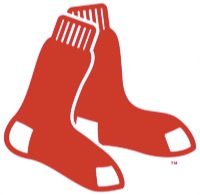Fenway Park is as respected as any ballpark in baseball, but that was not always the case. In the 1960’s, an ambitious plan nearly brought it to a close.
When tracing the history of Fenway Park, it becomes clear that it was at some points inevitable that the Boston Red Sox would depart the facility, which would be replaced by something on a grand scale. As recently as the late 1990’s, a new ballpark was discussed in several locations–including across Yawkey Way and at the unrealized Boston Sports Megaplex site in South Boston–but John Henry’s ownership and a subsequent plan to renovate Fenway brought those to a close.
However, that would never have happened had an ambitious, but highly controversial plan in the 1960’s come to fruition. The Boston Patriots were looking for a new stadium, while both Fenway and the Boston Garden were showing their age. As a result, the Greater Boston Stadium Authority was created in 1962, with its task being to develop a master plan that solved Boston’s stadium problems. Discussions included the replacement of both Fenway and the Garden, but they were met by plenty of skeptics at the time. More from Boston.com:
By 1967, the prospect of combining the project to rebuild the Garden with the new South Station stadium was being phased out. And the political climate was beginning to turn against a Boston stadium altogether.
“Currently you couldn’t get a winning vote for a resolution to commend George Washington in that place,” [the Boston Globe’s Bud] Collins wrote in a column in December of ’67. Red Sox owner Thomas Yawkey, who had initially been intrigued with the stadium possibility, had taken on a realistic viewpoint.
“Knowing the political climate around here, I expect we’ll be playing in Fenway Park for as long as I live. I don’t really mind. I like the place.”
Yawkey’s statement, whether intended seriously or born out of frustration, nonetheless proved prophetic.
Ultimately, Fenway is the one part of this vulnerable aspect of this plan that stands in Boston today. The Patriots went south to Foxboro and, though it took decades to the come to fruition, the Garden was eventually replaced with a new venue that is now known as TD Garden. Now 104 years old, Fenway seems here to stay, something that was unfathomable for many years.

